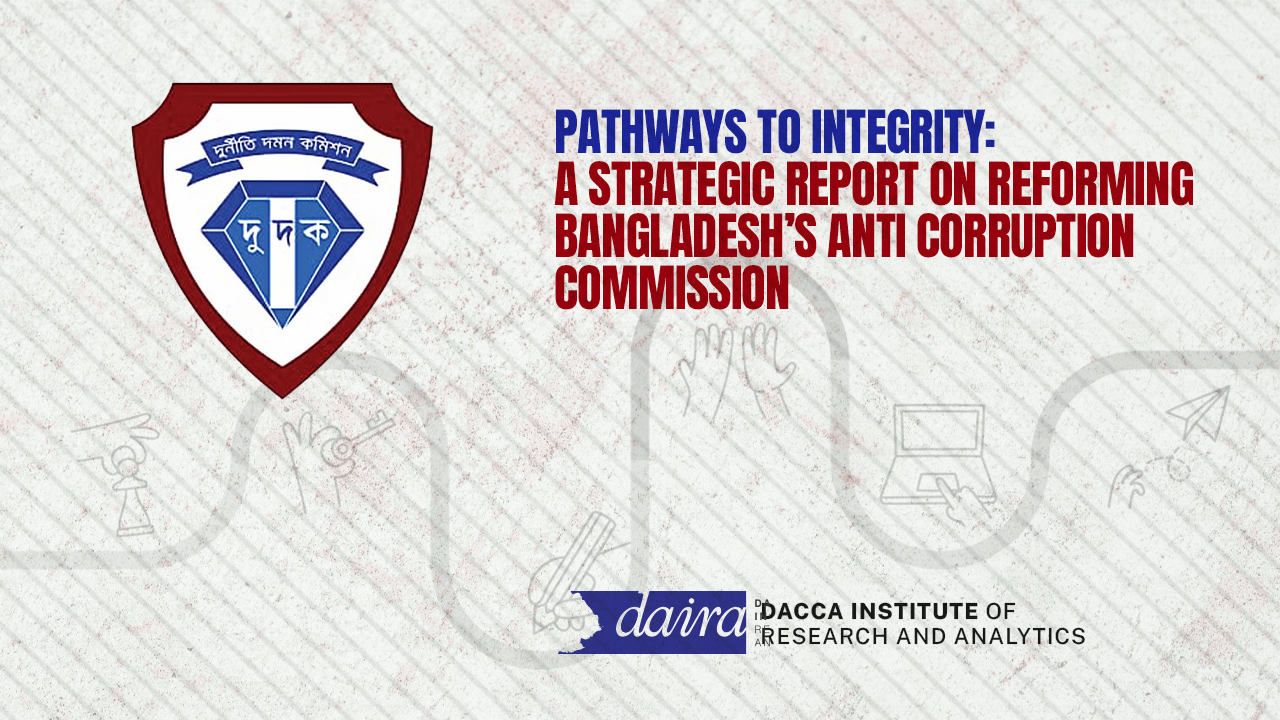This report has explored the multifaceted challenges and potential reforms necessary to strengthen the Anti-Corruption Commission (ACC) of Bangladesh. Drawing from expert opinions and case studies, it is evident that significant changes are required to transform the ACC into a more effective and independent body capable of tackling corruption at all levels of government and society.
The analysis underscores the critical need for leadership and structural reforms, financial independence, public engagement, capacity building, and judicial reforms. Lessons from Singapore’s Corrupt Practices Investigation Bureau (CPIB) further illustrate how operational independence, robust legal frameworks, and public trust are essential components of a successful anti-corruption strategy.
To achieve these goals, a holistic approach is necessary—one that involves the commitment of political leadership, collaboration with civil society, and engagement with international partners. Implementing these recommendations will not only enhance the ACC’s operational efficiency but also restore public confidence in its ability to uphold integrity and justice.
Ultimately, strengthening the ACC is vital for fostering a transparent, accountable governance system in Bangladesh, thereby laying the groundwork for sustainable development and societal trust. The proposed reforms, if enacted with genuine political will and societal support, hold the promise of a corruption-free future, essential for the nation’s progress and prosperity.
Read the full report 👇
Reforming Bangladesh’s Anti Corruption Commission


